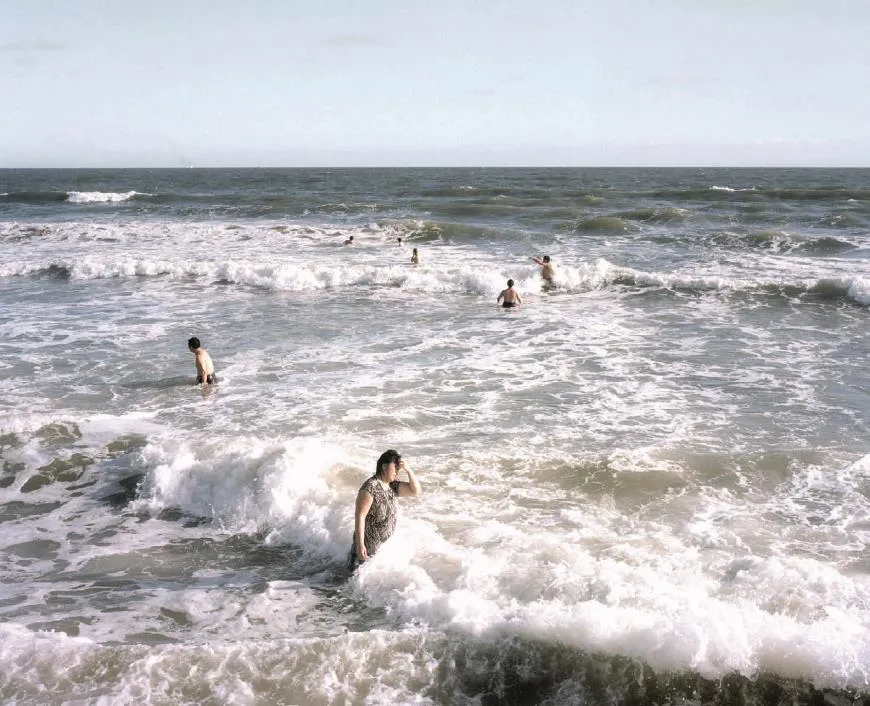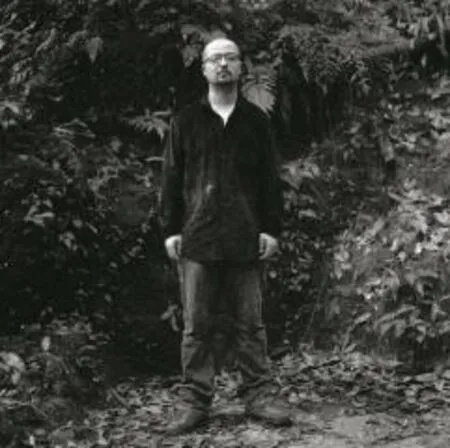THE BEACH PARADOX
2014-02-24
THE BEACH PARADOX

Coastline No.1, 2009

Zhang Xiao (张晓)
Zhang Xiao is one of the most prominent young photographers working in China today. His frank, quiet images strike an uncanny balance between the mundane and the absurd. In 2010 his series “They” (《他们》, 2006-2009) earned him the Three Shadows Photography Award. He lives and works in Chengdu, Sichuan Province.
After you graduated from Yantai University in 2005, you worked for theChongqing Morning Post. How has your work as a photojournalist inf l uenced your work as an artist?
Working as a photojournalist was extremely challenging and rewarding for me. Apart from routine, daily reports, I often conducted long in-depth interviews, all experiences I will never forget. Journalism provided me with a relatively stable income, so as a recent graduate I didn't have to worry too much over my livelihood. This freed me up, and I had spare time to make my own works, and I would often incorporate certain news items from my main job into my artworks. I've always felt very grateful to theChongqing Morning Post.
In your series “Coastline” (《海岸线》) , you spent four years traveling China's coastline and photographing its changing landscape. Can you describe this process?
I didn't need to select cities or locations, because during these four years I went to every city and county along the coast. Really, what I'm more interested in is people. I like to silently observe them. This sort of extended observation serves as a fi xed model; that is, when I came across such a scene I'd have a sort of automatic impulse to press the shutter, like a conditioned ref l ex. These scenes directly or indirectly ref l ect the contemporary conditions of my countrymen. They're a sort of contradiction, and this, of course, makes them absurd. I didn't have a fi xed work schedule. Sometimes I'd be up before it was light out, and sometimes I'd sleep until noon. Some days I'd shoot seven or eight rolls of fi lm, and other times it'd take days just to shoot one. I never had any mandatory goals; it was all just random wandering.
You've previously said that the coastline has historical signif i cance due to its status at the forefront of Chinese economic change. As a landscape image, what symbolic meaning do you attribute to the coastline?
Most Chinese provinces lie on the interior of the country. Perhaps many people do not understand the sea and the coastline. When people speak of the sea and the coastline they immediately think of sunny beaches, bikinis, and Sanya resorts. But my photographs eschew these superf i cial things, displaying a truer vision of the sea and coastline as an area in fl ux.
What is it that interests you about Chinese coastal landscape?
Every city in China is like a large construction site that will never be completed, undergoing constant demolition and rebuilding. History and culture have not received their due protection. Buildings and facilities are constructed in the biggest, tallest, fastest way possible in an attempt to catch up with the rest of the world. Of course, this is all just a superf i cial image. Behind this seemingly unprecedented prosperity, what have we gained and what have we lost? I think contemporary China is a massive paradox, and everywhere is full of contradictions. In pursuit of speedy economic development, we haven't taken into account its consequences. In my view, this contradiction's most prominent expression is in the absurd. - PATRICK RHINE

Selected pieces from Zhang Xiao's "They", 2006-2009
